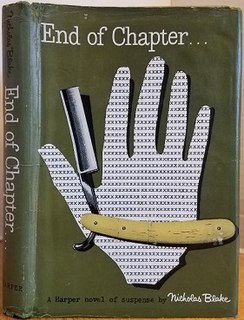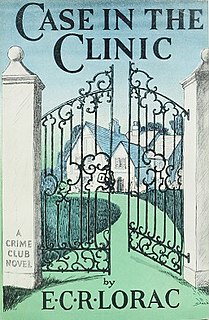Defamation is the oral or written communication of a false statement about another that unjustly harms their reputation and usually constitutes a tort or crime. In several countries, including South Korea, a true statement can also be considered defamation.
Sedition is overt conduct, such as speech and organization, that tends toward rebellion against the established order. Sedition often includes subversion of a constitution and incitement of discontent toward, or insurrection against, established authority. Sedition may include any commotion, though not aimed at direct and open violence against the laws. Seditious words in writing are seditious libel. A seditionist is one who engages in or promotes the interest of sedition.

John Peter Zenger (October 26, 1697 – July 28, 1746) was a German printer and journalist in New York City. Zenger printed The New York Weekly Journal. He was accused of libel in 1734 by William Cosby, the royal governor of New York, but the jury acquitted Zenger, who became a symbol for freedom of the press.
The Sunday Independent is an Irish Sunday newspaper broadsheet published by Independent News & Media plc, a subsidiary of Mediahuis.
Modern libel and slander laws, as implemented in many Commonwealth nations as well as in the United States and in the Republic of Ireland, are originally descended from English defamation law. The history of defamation law in England is somewhat obscure; civil actions for damages seem to have been relatively frequent as far back as the Statute of Gloucester in the reign of Edward I (1272–1307), though it is unknown whether any generally applicable criminal process was in place. The law of libel emerged during the reign of James I (1603-1625) under Attorney General Edward Coke who started a series of libel prosecutions. Scholars frequently attribute strict English defamation law to James I's outlawing of duelling. From that time, both the criminal and civil remedies have been found in full operation.
The first signs of the modern distinction between criminal and civil proceedings were during the Norman conquest of England in 1066. The earliest criminal trials had very little, if any, settled law to apply. However, the civil delictual law was highly developed and consistent in its operation.

The Paton Street Case is a 1955 mystery crime novel by the British writer John Bingham. It was published in New York by Dodd Mead with the alternative title of Inspector Morgan's Dilemma.

Natural Causes is a 1953 comedy crime novel by the British writer Henry Cecil. It was his fourth novel. As with most of his work it combines Wodehousian humour with a potentially major crime theme.

Night Club is a 1945 crime thriller novel by the British writer Peter Cheyney. It is often better known by its alternative title Dressed to Kill, the name by which it was published in the United States and subsequent British versions. As with other Cheyney novels it features a hardboiled hero, and dialogue influenced by American-based writers such as Raymond Chandler.

End of Chapter is a 1957 detective novel by Cecil Day-Lewis, written under the pen name of Nicholas Blake. It is the twelfth in a series of novels featuring the private detective Nigel Strangeways.
Lynn Brock (1877-1943) was the pseudonym of the Irish writer Alister McAllister, who moved to England and wrote a series of mystery novels. Brock is best known for his series of Colonel Gore detective novels, which enjoyed popularity in the 1920s and 1930s during the Golden Age of Detective Fiction. His novels employ a complexity of style and are generally set in rural locations. He also wrote several plays under the name Anthony Wharton.

Colonel Gore’s Second Case is a 1925 detective novel by the Irish writer Lynn Brock. It was the second in his series of seven novels featuring the character of Colonel Wyckham Gore. Gore enjoyed popularity during the early stages of the Golden Age of Detective Fiction. After solving his first case Gore now establishes his own detective agency.

Case in the Clinic is a 1941 detective novel by E.C.R. Lorac, the pen name of the British writer Edith Caroline Rivett. It is the twentieth in her long-running series featuring Chief Inspector MacDonald of Scotland Yard, a Golden Age detective who relies on standard police procedure to solve his cases.

The Box Office Murders is a 1929 detective novel by the Irish-born writer Freeman Wills Crofts. It is the fifth in his series of novels featuring Inspector French, a prominent figure of the Golden Age of Detective Fiction. It was published in the United States the same year by Harper under the alternative title The Purple Sickle Murders.

Death at Breakfast is a 1936 detective novel by John Rhode, the pen name of the British writer Cecil Street. It is the twenty third in his long-running series of novels featuring Lancelot Priestley, a Golden Age armchair detective. It received a negative review from Cecil Day-Lewis, writing as Nicholas Blake in The Spectator noting "Some attempt is made to establish the character of the victim, but the remaining dramatis personae are stuffed men".

Death in the Hopfields is a 1937 detective novel by John Rhode, the pen name of the British writer Cecil Street. It is the twenty fifth in his long-running series of novels featuring Lancelot Priestley, a Golden Age armchair detective. It was published in America by Dodd Mead under the alternative title The Harvest Murder.

Death in Harley Street is a 1946 detective novel by John Rhode, the pen name of the British writer Cecil Street. It is the forty third in his long-running series of novels featuring Lancelot Priestley, a Golden Age armchair detective. Several sources consider it to be the author's masterpiece.

Murder in St. John's Wood is a 1934 detective novel by E.C.R. Lorac, the pen name of the British writer Edith Caroline Rivett. It is the sixth book featuring Chief Inspector MacDonald of Scotland Yard who appeared in a lengthy series of novels during the Golden Age of Detective Fiction.

The Case of Colonel Marchand is a 1933 detective novel by E.C.R. Lorac, the pen name of the British writer Edith Caroline Rivett. It is the fourth book featuring Chief Inspector MacDonald of Scotland Yard who appeared in a lengthy series of novels during the Golden Age of Detective Fiction.

Relative to Poison is a 1947 detective novel by E.C.R. Lorac, the pen name of the British writer Edith Caroline Rivett. It is the twenty ninth in her long-running series featuring Chief Inspector MacDonald of Scotland Yard, one of the detectives of the Golden Age of Detective Fiction who relies on standard police procedure to solve his cases..














